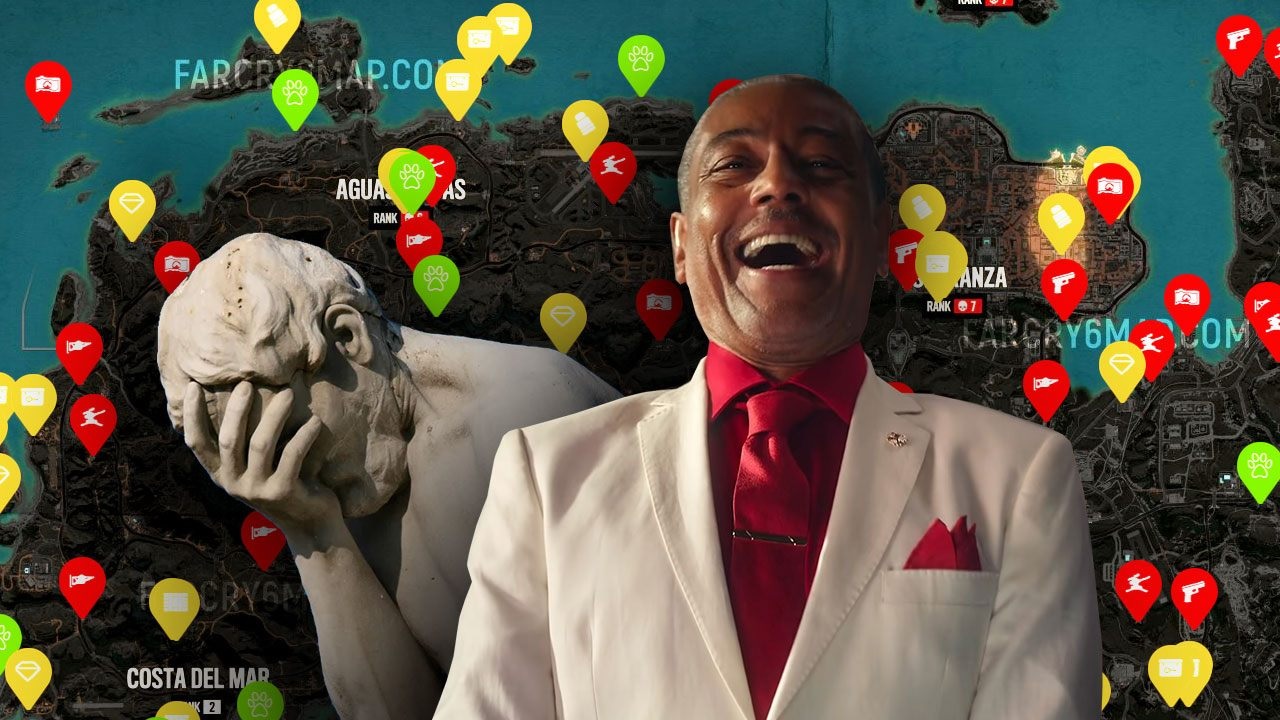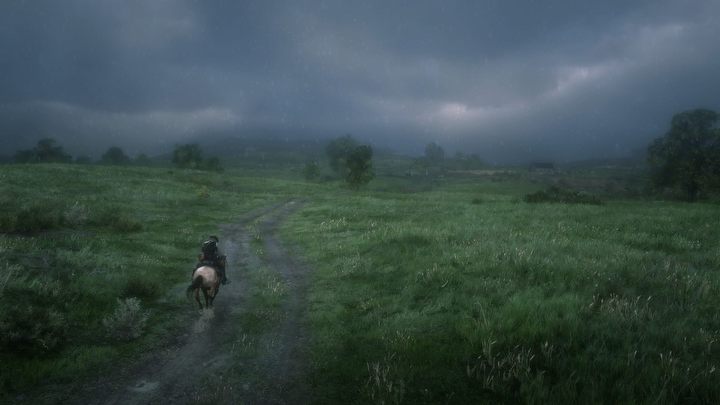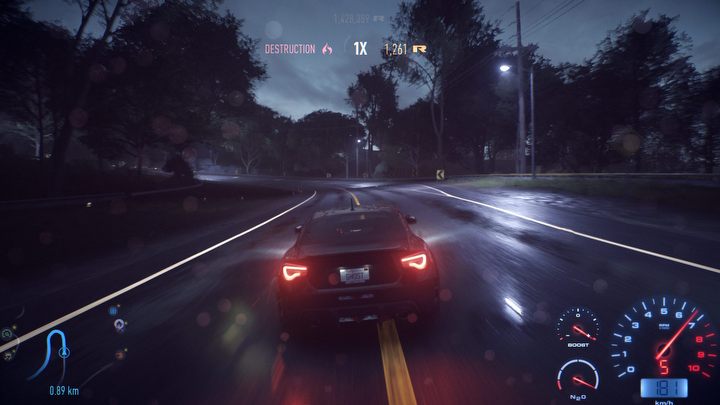Open Worlds, Shut Up! There's Too Many of You
The market got saturated with open-world games. No matter if it's racing, action, RPG, or shooter. Every game needs a huge map complete with meaningless activities. Size matters? Sure, and we need to scale down!

First of all, I am not against open-world games per se. Some genres seem inseparable from freedom of exploration. Still, when considering freedom, we have to remember that it doesn't necessarily have to entail a huge map open for exploration. A good example is Prey from 2017, as well as other immersive sims, where freedom manifests itself in the approach to the experience. We get several ways to explore subsequent rooms, complete missions, or eliminate opponents.
The huge map works great in Skyrim, Grand Theft Auto or Red Dead Redemption. It is difficult to imagine these titles in any other form. Especially since they are so well constructed. These are worlds that are not overly interested in the player – rather, he or she must find something to do on his own or react to an event. And they are not intrusive.
As for the rest of these games – unfortunately, they don't attain similar quality, and are all extremely derivative. The mandatory elements include a huge map (Ubisoft recently boasted it broke the record with Far Cry 6), and a ton of markers and repetitive activities that we encounter at almost every step. Be it the bandit camps in Horizon Zero Dawn, the viewpoint in Assassin's Creed 2 or the XP boards in Forza Horizon 5. Crafting is also welcome, as it warrants scattering all kinds of collectable resources on the map.
In all this, of course, RPG elements must be emphasized, such as side quests and character development. Such a structure provides countless "attractions" along the way to the objectives, effectively extending the time needed to complete the game. Especially if the world is full of enemies with whom we often fight. You don't have to play this way, of course, but my assumption is that if a game allows me to do something, I'll go for it. And then I always get the feeling in the back of my head that all of this stuff will be useful at some point. So, my character often becomes overly strong quite early on, which has negative impact on the difficulty level. But that's not my real problem, and this opinion piece isn't about the things that mage open worlds great, or the opposite.
Looking for a new linear game? Here's a few great ones from 2021:
- Marvel's Guardians of the Galaxy
- Death's Door
- The Forgotten City
- Resident Evil Village
- Ratchet & Clank: Rift Apart
- Life is Strange: True Colors
- The Medium

I can spend a thousand hours in Red Dead Redemption 2 and don't have enough of it. One of the best open worlds in games. At first glance empty, but in reality incredibly detailed and coherent.
I wouldn't see anything wrong with the sheer number of open-world games if there were more sensible alternatives among the biggest hits. Diversity is key, and clearing a huge map of question marks is ok as long as you have other games, which allow for more mysterious and independent exploration. Most of the time, however, I don't feel that clearing question marks should be my only activity in a game.
It pains me that the genres and series once famous for linear locations and concise stories, suddenly turned into behemoths for hundreds of hours. It happened with my favorite cycles, which I loved for what they were. This includes God of War, which turned from a fast, action-packed slasher into a slow, pseudo-RPG, in which for some time I had to explore a deserted world and perform side quests, helping ghosts. And this game was made a mere slave to the trend, with little to offer in terms of originality. It's similar with Tomb Raider, where – instead of exploring tombs in search of ancient secrets – we had to fetch twigs from forests and hunt animals. It was similar with Metal Gear Solid 5 (one of the worst open worlds) and could be the fate of upcoming Elden Ring, though this game could be a rare case of an open world being actually welcome. There's many more games that rehearsed this scenario. Way too many.
Back to the corridor
I miss short, intense, linear action games like Max Payne, Vanquish or the first installments of Gears of War. I've always had this kind of alternative, and now these games seem to be slowly fading into oblivion. Of course, there are still linear productions, such as the Call of Duty series, new Wolfenstein, Doom and Eternal, and FromSoftware's games. I can't also omit the fantastic Life is Strange: True Colors and Alien: Isolation. Forza Horizon and Need for Speed have huge maps, but there are also Dirt Rally and Gran Turismo, where such a structure wouldn't make sense. But there aren't too many of these games, and as a fan if linear adventures, I've become weary of finding the right game for me.

I would prefer Need for Speed to go back to the roots and let us enter races from map/menu level. It would also be nice to drop the redundant RPG elements.
Of course, there are game remasters from previous generations of hardware, including a few good ones, and there's always the indie scene. Still, I worry about the trend of opening up the worlds at all cost. Why is that? Because it stretches games, often lengthening them unnecessarily. Of course, this is not a rule, because even a relatively linear position may be too long, as was the case with both parts of The Last of Us. I would be much more likely to play Need for Speed if it was constructed in a similar fashion to Driveclub. With regular menus offering races, upgrades, and other tabs. Without having to drive to every race. Just like it used to be. The fact that I arrived at the location of next competition, rather than just chose it from the menu, adds nothing but a sense of lost time. Let's say I accept what the EA's racing series has become since Underground 2. However, I am worried that more franchises will go in this direction, which is already happening.
I understand the desire to buy games that last a long time. When you spend 60 bucks or more, it would be nice to make sure the game yields at least a few evenings of good fun. But when buying the next installment of Devil May Cry, fully aware that it is a game for 10 hours tops (single playthrough), I also know that I will spend up to a hundred hours with it, eager to meet more and more difficult challenges.
Until today, I've spend over 500 hours in Max Paynie 3, repeatedly completing the main story and playing multi. It's such a great game that I want to keep coming back. Sufficiently long, balanced, without any intrusive, artificial activities that are supposed to keep me around for longer. What keeps the player engaged is the quality they expect – a huge map with a million markers is not a guarantee of that. Especially when it all looks like it's done with some kind of randomized generator, at low effort and without coherence. Wrong! Linear games with big budgets can boast advanced physics, cutting-edge character animations, interesting mechanics, attention to detail and a condensed story. I certainly hope games like that won't be forgotten.

